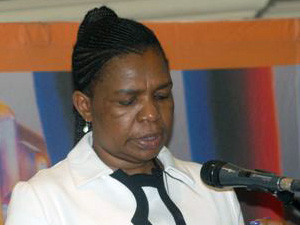
The Department of Communications (DOC) has introduced two ICT strategy policies aimed at empowering the youth and the disabled in the use of ICTs.
The strategies will serve as guidelines for government and the ICT sector, and aim to create an enabling environment that will ensure both parties participate in and benefit from ICTs through the building of inclusive, accessible ICT services and facilities to ensure equal opportunities.
The launch of these strategies coincide with Disability Awareness Month, in November, with the theme of this year's International Day of Disabled Persons (IDDP) being "Removing barriers to create an inclusive and accessible society for all".
Ari Seirlis, CEO of the QuadPara Association of South Africa (QASA), challenged the DOC to give people with disabilities access to ICTs.
According to Seirlis, disabled people's functionality in society depends highly on communication, especially when they need to convey messages to others through the use of ICT tools.
According to the minister of communications, Dina Pule, the DOC would like to see the disabled having access to ICT like any other person in the country without discrimination. She also urged the youth to be part of the solution by being innovative. The Youth and ICT strategy will also benefit young people by bridging the digital divide between rural and urban youths.
Pule also stated that the DOC is pleased that these strategies were not only the work of government, but were the result of interaction between the DOC, the ICT sector, state-owned entities, youth and disabilities organisations, and other government departments. The two strategies will address unemployment issues and improve the use of ICTs in SA among the youth and the disabled, she said.
The South African Youth Council (SAYC) led the participation process on behalf of the youth, outlining its vision that every young person in SA has access to ICT and is able to leverage ICT to acquire more skills for employment and business opportunities.
Share